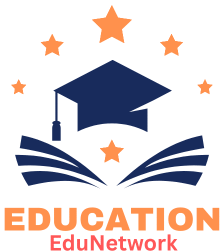In today’s increasingly digital world, educators seeking flexible and meaningful careers are increasingly drawn to remote educational consulting roles. If you are enthusiastic about education and have expertise in academic counselling, teaching strategies, or curriculum development, remote educational consulting offers a dynamic career path with several benefits. This article discusses the skills necessary to work as a remote educational consultant, where to get these skills, and why they are in high demand.
Is Working as an Educational Consultant from Home a Real Possibility?
Giving informed advice and guidance to educational institutions, schools, or private clients—often via online channels—is what a remote educational consultant does. Curriculum development, teacher professional development, and the improvement of instructional practices are all areas in which consultants excel. The ability to work remotely gives workers more freedom and a better work-life balance than traditional office jobs.
The expansion of EdTech companies, online education, and virtual classrooms has led to a rise in the need for remote educational consultants. Using their knowledge and experience, these consultants remotely help clients with issues including improving student performance, adapting to new educational trends, and fixing problems.
Advisors for Distance Learning: Their Primary Responsibilities
A remote educational consultant’s regular responsibilities could vary widely depending on their customer and speciality, but often involve the following:
-
Frameworks for curricula that adhere to state or federal mandates are developed and evaluated via the process of curriculum development and review.
-
Professional development and training for educators might include offering online seminars, webinars, and coaching sessions.
-
Educational technology integration refers to the process of advising schools on the acquisition and use of technological resources.
-
Student Assessment and Support: offering strategies for intervention and student engagement, as well as aiding in the development of assessment tools.
-
Providing guidance to schools or individuals on academic planning, career pathways, and course selections is known as academic counselling.
-
Grant writing and program evaluation: assisting groups in their funding applications and assessing the effectiveness of educational programs.
For What Reasons Are Jobs as a Remote Educational Consultant the Way to Go?
There are a growing number of reasons why remote educational consulting is appealing to educators and other professionals in the field:
1. Flexibility and Work-Life Balance
Thanks to remote work, you may do your job from the comfort of your own home or any other place with an internet connection, cutting down on commuting time. This adaptability allows for the better management of one’s personal and professional responsibilities.
2. Multiple Job Options
Among the many services offered by educational consultants include advising on higher education, designing K-12 curricula, and assistance with educational technology. Thanks to this diversity, professionals have the freedom to pursue their interests.
3. Possibility of Attractive Compensation
Veteran remote educational consultants, especially those strong in technology integration and grant writing, may earn competitive salaries.
4. Continual Learning and Improvement
Consulting encourages lifelong learning by putting professionals in front of a wide range of new problems and opportunities.
5. Learning Outcome
By shaping educational policy and practice, consultants directly affect students’ academic outcomes.
Key Abilities for Work as Online Educators’ Consultants
A remote educational consultant must possess the following skills and certifications in order to be successful in their role:
-
Possessing a degree in education, curriculum design, counselling, or a related field is often required, demonstrating a strong educational background.
-
Proficiency in Curriculum and Instruction: Familiarity with pedagogical approaches, evaluation tools, and benchmarks for student achievement.
-
Having a solid grasp of LMSs, instructional software, and virtual communication technologies is essential for technological proficiency.
-
The ability to clearly and concisely convey complex ideas using many forms of written and visual media, including presentations, video discussions, and reports.
-
Evaluating educational programs and suggesting improvements based on facts requires analytical thinking.
-
Time management and self-motivation include setting and meeting deadlines and working independently.
-
Credibility is enhanced by a background in consulting, education, or teaching.
Guidelines for Finding Work as an Online Education Consultant
If you are ready to look for remote educational consultant employment, here are some effective ways to find prospects:
1. Online Resources for Employment
Use popular job boards like Indeed, LinkedIn, and Glassdoor, as well as sites that focus on certain fields of study. Find people who fit your criteria by using terms like “online curriculum specialist,” “virtual education consultant,” and “remote educational consultant.”
2. Educational Consulting Firms
Several companies use remote consultants to work with clients on projects related to curriculum and professional development for educators. You may find several different firms online and apply for them all at once.
3. Freelancer Platforms
Upwork, Fiverr, and Freelancer are just a few examples of the platforms where you may get project-based consulting employment. These opportunities might lead to an increase in your clientele and portfolio.
4. Networking and Social Media
Join education-focused professional groups on social media platforms like Facebook or LinkedIn to meet hiring managers and find out about employment openings.
5. Communicating Openly
Get in touch with educational institutions, EdTech companies, or organisations that might benefit from your remote consulting services.
Experience, Education, and Credentials That Raise Your Prospects
It is not necessary to have the following qualifications to operate as a remote educational consultant, but they will improve your employability:
-
Certified Educational Planner is an abbreviation for the same.
-
Certified Project Management Professional
-
Google-Authored Instructor
-
If you want to work with students of other languages or in a foreign country, you’ll need to get your TESOL or ESL certification.
-
Skills in the field of instructional design
-
Additional training in niche areas, such as technology integration or special education, might help you stand out from the crowd.
The Challenges of Being an Educational Consultant Working Remotely
There are downsides to remote consulting, despite its advantages.
-
Keeping in Touch with Clients: Building trust while working remotely requires proactive engagement and excellent communication.
-
Since consulting from home might at times seem lonely, it is important for consultants to actively network in order to manage isolation.
-
Time management is crucial when juggling many tasks with different due dates, which is a common occurrence when managing multiple clients.
-
Keeping Up: Pursuing continuing education is crucial since the field of education is always evolving.
Helpful Hints for Landing a Remote Educational Consultant Position
-
Obtain a High-Quality Work Area: A tidy, peaceful home office is ideal for getting work done.
-
Use Technology to Your Advantage: Utilise cloud storage, project management tools, and video conferencing to collaborate more effectively.
-
Build an Influential Online Profile by Regularly Posting About Your Speciality on Your Blog, Website, or LinkedIn Page.
-
In order to make your services better, it’s a good idea to often ask your customers for feedback.
-
Maintain: Stay current on educational research, trends, and technology developments.
-
Connect with other professionals in the field by joining groups like ISTE or ASCD (the Association for Supervision and Curriculum Development).
The Future of Working as a Remote Educational Consultant
The future is bright for educational consultant roles that may be done remotely. The COVID-19 epidemic hastened the adoption of digital technology and distance learning, increasing the need for consultants who can smooth this change. As more and more schools and educational institutions move towards hybrid and online models, there will likely be a greater need for skilled remote consultants.
The expansion of EdTech companies also creates new opportunities for consultants to assist with product development, user training, and implementation strategies.
In Conclusion
Remote educational consultant opportunities provide an exciting and flexible career option for education professionals who want to work remotely while having the freedom to make a meaningful impact. With the right set of skills, qualifications, and a determined approach to finding a job, you may tap into a thriving market teeming with opportunities. Whether you’re an expert in curriculum development, teacher preparation, or educational technology (EdTech), you can use your knowledge to improve education for all students via remote consulting.
